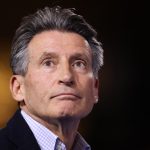
In a recent development, the nationwide strike initiated by the Nigerian Association of Resident Doctors (NARD) has been temporarily suspended, bringing a semblance of relief to the nation. However, the consequences of the strike, which left hapless Nigerians grappling with dire healthcare challenges, continue to reverberate. The association’s national president, Innocent Orji, confirmed the suspension of the strike on Friday evening, announcing that medical work would recommence the following day.
Despite the temporary respite, Nigerians remain apprehensive, as the strike could potentially be reinstated at any moment. The medical sector’s crisis has proven to be a persistent issue that the government seems ill-equipped or unwilling to address. The root causes of this crisis are manifold, encompassing non-competitive remuneration, inadequate social security benefits, deplorable working conditions, crumbling infrastructure, under-equipped facilities, and a severe shortage of medical professionals. These shortcomings have substantially contributed to the continuous outflow of medical experts to more promising opportunities abroad, further weakening the country’s healthcare system.
The nationwide strike was triggered by the government’s failure to meet the demands of NARD. The medical body’s demands encompassed a review of the Consolidated Medical Salary Structure (CONMESS), disbursement of the 2023 Medical Residency Training Fund (MRTF), issuance of a circular by the Federal Ministry of Health for the replacement of clinical staff in public hospitals, settlement of outstanding salary arrears, enhancement of hazard allowances by state governments, and adjustment of the minimum wage, among other concerns.
Speaking to the press, NARD’s President, Dr. Emeka Orji, voiced the shared frustration of resident doctors regarding the government’s passive approach to fulfilling their mutual agreements. He stated, “Hospitals are understaffed, and our colleagues are struggling to cope with the overwhelming workload. Many are breaking down, and some have tragically lost their lives due to the exhaustion caused by excessive work.”
The Nigerian government responded to the strike by instructing federal tertiary hospitals to enforce the “no work, no pay” policy against striking resident doctors, meaning they would not receive their regular salaries during the strike. However, the doctors remained steadfast in their cause, asserting that the government’s action lacked moral justification.
This strike underscores the government’s failure to prioritize quality healthcare services. The punitive measures taken by government officials reveal a lack of effective conflict resolution skills and highlight their disregard for issues that do not directly impact them.
Although medical consultants, dental doctors, nurses, and other health workers attempted to fill the gap left by the striking resident doctors, the public healthcare system suffered considerable disruption, given that resident doctors constitute a significant portion of medical staff in tertiary hospitals. Patients bore the brunt of this disruption, with some being denied medical attention and others being hastily discharged to seek care in private facilities. Throughout this turmoil, the government remained seemingly indifferent to the plight of its citizens.
The pivotal question that emerges is: What is the essence of a government if not to safeguard the welfare and security of its people? Neglecting the medical sector’s needs and the well-being of its medical workforce only amplifies the nation’s suffering. Nigeria possesses the potential to boast world-class medical facilities, but this can only be realized if the government allocates the attention and respect healthcare deserves.
Furthermore, the government’s failure to honor its commitment to replace departed medical professionals exacerbates the strain on the already lean and overworked medical workforce. Thus, rather than resorting to threats, the current administration should engage NARD in constructive dialogue to resolve the ongoing dispute. This approach would facilitate the resumption of full medical services in public tertiary health facilities, benefiting the nation’s well-being and potentially averting the resurgence of the suspended strike.
Ultimately, adequate healthcare facilities, humane working conditions, and competitive incentives for medical personnel rest squarely on the shoulders of the government at all levels. If the country’s political leaders can enjoy generous remuneration and allowances, the same principle should apply to NARD’s demands. Nigeria’s continuous brain drain across various sectors emphasizes the urgency of addressing systemic failures. By limiting or prohibiting foreign medical tourism for public officials and compelling them to utilize the same facilities as ordinary citizens, the government could be galvanized to overhaul the healthcare system for the better.





Comments are closed.